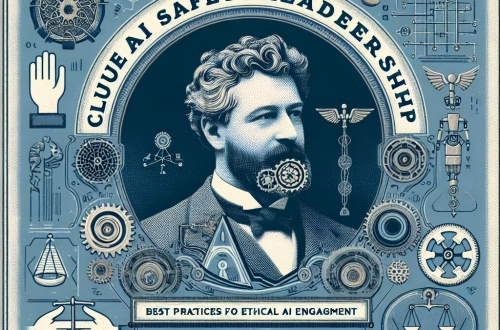Google AI 2025 Research Advancements
Summary:
Google AI is set to revolutionize the artificial intelligence landscape with its 2025 research advancements, focusing on enhancing model efficiency, real-world applicability, and ethical AI deployment. These innovations aim to make AI more accessible to businesses, developers, and everyday users while addressing critical challenges such as computational costs and bias. Key areas of development include multimodal AI integration, energy-efficient training methods, and federated learning. For novices in the AI industry, understanding these advancements is crucial, as they will shape how AI tools are adopted across industries like healthcare, finance, and automation.
What This Means for You:
- Enhanced AI Accessibility: Google’s advancements will lower barriers to entry for AI adoption, allowing smaller businesses and individuals to leverage powerful models without requiring extensive technical expertise. Expect more user-friendly AI tools in cloud platforms like Google Cloud AI.
- Actionable Advice for Developers: Explore Google’s open-source AI frameworks like TensorFlow and JAX to stay ahead of emerging techniques, focusing on modular AI solutions that can be customized for specific needs.
- Practical Implications for Industries: AI-driven automation will see significant improvements, particularly in medical diagnostics and customer service. Businesses should prepare for AI integration by investing in training programs for employees.
- Future Outlook or Warning: While these advancements promise transformative benefits, there are concerns about data privacy and algorithmic bias. Users should stay informed about ethical AI practices and advocate for transparent governance in AI deployment.
Explained: Google AI 2025 Research Advancements
Multimodal AI Integration
One of the key advancements in Google AI’s 2025 research is the expansion of multimodal AI systems, which combine text, image, and audio processing in a single model. This innovation allows AI to better understand context, improving applications like virtual assistants, content moderation, and augmented reality. For example, Google’s PaLM-E model demonstrates how robots can process visual and textual data simultaneously for enhanced task performance. The main challenge, however, remains in training efficiency and computational costs, which Google is addressing through sparsity techniques and neural architecture search (NAS).
Energy-Efficient AI Training
Google AI is prioritizing sustainable AI development by optimizing energy consumption during model training. Traditional AI models like GPT-4 require massive computing power, leading to high carbon footprints. In contrast, Google’s 2025 research introduces techniques such as mixture-of-experts (MoE) models and low-precision training to reduce energy usage by up to 50%. This not only lowers operational costs but also aligns with global sustainability goals. However, trade-offs in accuracy for smaller models may require careful fine-tuning.
Federated Learning for Privacy
With growing concerns about data privacy, Google is advancing federated learning (FL) techniques, enabling AI models to train on decentralized data without centralized storage. This is particularly valuable for healthcare and finance, where sensitive data must remain secure. Google’s 2025 FL frameworks will introduce differential privacy enhancements and secure aggregation protocols. The downside is slower training convergence, though innovations like Federated Reinforcement Learning (FRL) are mitigating this limitation.
Strengths and Weaknesses
Google AI’s 2025 advancements excel in scalability and real-world integration, but challenges persist in bias mitigation and transparency. While researchers are improving fairness-aware training methods, ensuring ethical AI implementation will require continuous oversight. For novices, these developments mean easier access to AI tools but also necessitate a deeper understanding of responsible AI use.
Best Use Cases
The most promising applications of Google’s 2025 AI include personalized education platforms, AI-augmented creative tools, and autonomous systems in manufacturing. Businesses should focus on adopting these models via Google’s Vertex AI platform for seamless cloud integration.
People Also Ask About:
- How will Google AI 2025 research impact everyday users?
Everyday users will experience more intuitive AI-powered applications, from smarter voice assistants to personalized content recommendations. Google’s improvements in multimodal AI mean faster, more accurate responses in tools like Google Search and YouTube, enhancing digital experiences without requiring technical know-how.
- What industries will benefit most from these advancements?
Healthcare, finance, and retail will see the most immediate benefits. For example, AI-driven diagnostic tools will improve early disease detection, while financial institutions can leverage federated learning for fraud detection without compromising customer privacy.
- Are Google’s new AI models energy-efficient?
Yes, Google’s 2025 models focus on reducing energy consumption through techniques like sparse training and MoE architectures. These innovations make AI development more sustainable without significantly sacrificing performance.
- How can small businesses adopt these AI advancements?
Small businesses can utilize Google’s pre-trained models via APIs in Google Cloud, which lower the need for in-house AI expertise. Starting with tools like AutoML or Dialogflow can help automate customer interactions and data analysis cost-effectively.
Expert Opinion:
Experts emphasize that while Google’s 2025 AI advancements push the boundaries of efficiency and usability, organizations must prioritize ethical considerations. Ensuring transparency in AI decision-making and mitigating biases in training data will be critical. Long-term, these models will drive industry-wide automation but require robust governance frameworks to prevent misuse.
Extra Information:
- Google AI Blog (ai.googleblog.com): Covers the latest research papers and real-world case studies on AI advancements, including 2025 roadmap updates.
- TensorFlow Documentation (tensorflow.org): A resource for developers to explore Google’s open-source ML frameworks and tutorials for implementing new techniques.
Related Key Terms:
- Google AI multimodal models 2025 applications
- Energy-efficient AI training techniques Google 2025
- Federated learning advancements Google AI privacy
- Google Cloud AI tools for small businesses 2025
- Ethical considerations in Google AI research 2025
Check out our AI Model Comparison Tool here: AI Model Comparison Tool
#Google #research #advancements
*Featured image generated by Dall-E 3





